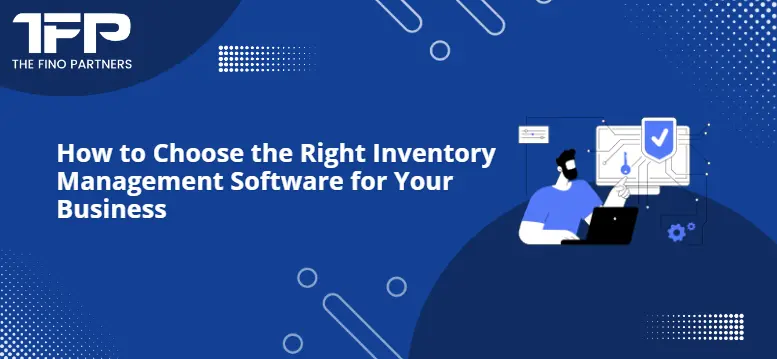Of all the functions important for small businesses to streamline processes while increasing profitability, managing your inventory will turn out to be effective. During the journey towards building seamless digital solutions, the importance of inventory management software for small businesses is among large-scale enterprises. With the proper software, companies can maintain accurate stock levels, avoid overstocking, and prevent inventory shortages. But which one is for you? With so many products available these days, it gets confusing to choose the right software that best answers the needs of the business. This blog will walk you through the steps on how to choose the perfect inventory management solution for your business, underscoring the significance of virtual bookkeeping and the consumption of remote bookkeeping services along with the right inventory management software.
Why Is Inventory Management Software Important?
A strong inventory management system offers the following significant benefits:
- It minimizes the occurrences of human error: Automated software eliminates the possibility of human error in checking the inventory.
- Stock visibility increases: Know exactly what is in the warehouse, what has been ordered, and what is on the way
- Efforts and hours saved: The automated process requires much less time to spend on the entire set of inventory activities
- Customer satisfaction increases: The appropriate inventory level enables the timely delivery of orders.
Decide on the Needs of Your Business for Effective Inventory Management
Assess the Level of Your Business's Inventory Complexity
Inventory complexity varies with product range, supply chain, and sales channels. In making your choice regarding the software, consider the following:
- Product variety: Any highly varied product range should look for software that provides options in detailed categorisation.
- Sales platforms: Consider a system that integrates all the platforms you sell through, including e-commerce sites and in-store POS.
Supplier relationships: Some software deals have features of reaching out to suppliers that will help you to restock efficiently.
Choose Your Essential Inventory Management Software Features
Determine what is most important to the success of your business. Essential features can include:
- Real-time inventory tracking: Always find out what's in stock and where the stock is.
- Order management: Track your shipments and prevent unnecessary stockouts.
- Reporting and analytics: Analyze trends, costs, and forecasts with complete reports.
- integration with virtual bookkeeping services for small businesses. A seamless finance tracking capability must be in tandem with your inventory and stock.
Choose Your Best Inventory Management Solution
How Does the Software Handle Remote Bookkeeping Services?
The software that offers superb integration with remote bookkeeping services is superb in managing your financial aspects properly. It is very much useful if you run a virtual bookkeeping for managing the remote maintenance of financial records in your business.
- Integration with the best virtual bookkeeping services: Connects your inventory software to major virtual bookkeeping services for financial accuracy.
- Automated invoicing: Keeps your billing well-ordered and uniform about their process of payment.
- Cost analysis: Ensure that proper cost implications of your inventory are controlled once all data are well integrated.
Scalability and Future-Proofing
The more that your business grows, the bigger your need for inventory items will grow. Ensure scalability in a piece of software so you can adjust accordingly to, for example higher sales volume or new locations.
- Configure settings to manage higher orders as you expand your operation
- Provide extensions to better support new needs.
- Integration with your virtual bookkeeper should also be allowed, so you can get seamless bookkeeping even as you scale up
Usability
- An easy-to-use interface saves you much time and also reduces the learning curve. Consider:
- Navigating: How easy is it to navigate within the software? Are the menus clear and well-organised?
- Mobile accessibility: Will the updates and monitoring be possible when on the move? Does the software have a friendly mobile interface?
- Customer support: Does the company offer good support, especially during initial setup and training?
Cost of Inventory Management Software and Budgeting Options
Pricing is always a cost factor, but balance cost with value. Most come with several packages, depending on features and volume.
- Monthly vs. yearly plans: Some providers may offer discounts for yearly commitments.
- Cost of integrations: Consider any fees for integration with virtual bookkeeping services and and small business solutions.
- Free trial periods: Look for free trials to test whether the software fits your needs before you spend a dime.
Read Also:- How to Choose the Best Cloud Inventory Management Software for Your Firm
Conclusion
The selection of the right inventory management software involves unique needs in your business: how complicated your inventories are and if they integrate. For instance, you should look for features that match your business model and scalability options for future growth and integration with remote bookkeeping services. Consider the following when you make a selection: ensure that the software does not only organize your inventory but can also support your overall financial management. For a hassle-free experience, Fino Partners' virtual bookkeeping services provide seamless financial management to help you focus on growing your business while keeping your inventory and finances in sync.




























